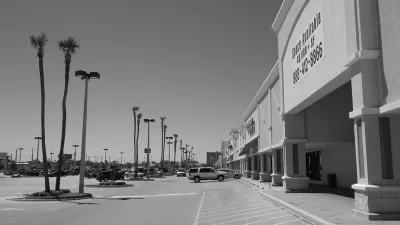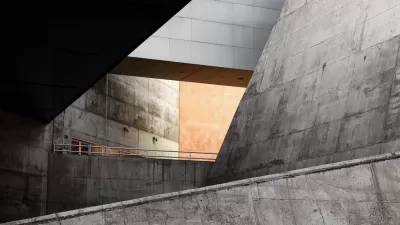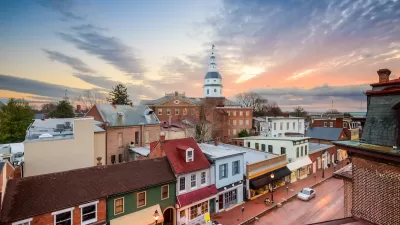An economic development pro makes an argument for an approach to economic development that prioritizes the urban design decisions that favor community character.

Joe Borgstrom, principal with Place + Main Advisors, LLC, flips the script on the traditional defense of community character: the reader won't find here an impassioned defense of suburban tract homes and the free flow of automobiles, but an approach to economic development that reflects the urban design agenda put forward by the Congress for the New Urbanism.
"Preserving a community’s character is often used as a rallying cry for the NIMBY (Not in My Back Yard) crowd, but a community can improve itself without completely changing its character," Borgstrom writes.
But where some market urbanists might find fault with the idea of community character as a quantifiable concept, Borgstrom argues for the inherent economic value of community character: "Before any marketing brochure, website, or ad campaign, the community’s character is its first and most important economic development message."
With more detail included in the article, Borgstrom lists several character killers, namely, strip malls, car-centric land use and infrastructure, national chains, mega-block projects, and a lack of historic preservation.
On the issue of historic preservation, Borgstrom is most in-line with the traditional development opposition politics the article clearly intends to critique. The difference might be found in Borgstrom's focus on the financial incentives working in preservation's favor (even in the face of market pressure that favors building quick, cheap, disposable buildings, according to Borgstrom): "But historic preservation is an effective economic development tool that can help prospective building owners get financing for the appropriate care and redevelopment of a property. There are several financial incentives to do these types of projects, namely the federal Historic Tax Credit which offers up to 20% tax credit for eligible expenses."
FULL STORY: How to Prevent Killing Your Community’s Character

Maui's Vacation Rental Debate Turns Ugly
Verbal attacks, misinformation campaigns and fistfights plague a high-stakes debate to convert thousands of vacation rentals into long-term housing.

Planetizen Federal Action Tracker
A weekly monitor of how Trump’s orders and actions are impacting planners and planning in America.

In Urban Planning, AI Prompting Could be the New Design Thinking
Creativity has long been key to great urban design. What if we see AI as our new creative partner?

King County Supportive Housing Program Offers Hope for Unhoused Residents
The county is taking a ‘Housing First’ approach that prioritizes getting people into housing, then offering wraparound supportive services.

Researchers Use AI to Get Clearer Picture of US Housing
Analysts are using artificial intelligence to supercharge their research by allowing them to comb through data faster. Though these AI tools can be error prone, they save time and housing researchers are optimistic about the future.

Making Shared Micromobility More Inclusive
Cities and shared mobility system operators can do more to include people with disabilities in planning and operations, per a new report.
Urban Design for Planners 1: Software Tools
This six-course series explores essential urban design concepts using open source software and equips planners with the tools they need to participate fully in the urban design process.
Planning for Universal Design
Learn the tools for implementing Universal Design in planning regulations.
planning NEXT
Appalachian Highlands Housing Partners
Mpact (founded as Rail~Volution)
City of Camden Redevelopment Agency
City of Astoria
City of Portland
City of Laramie





























